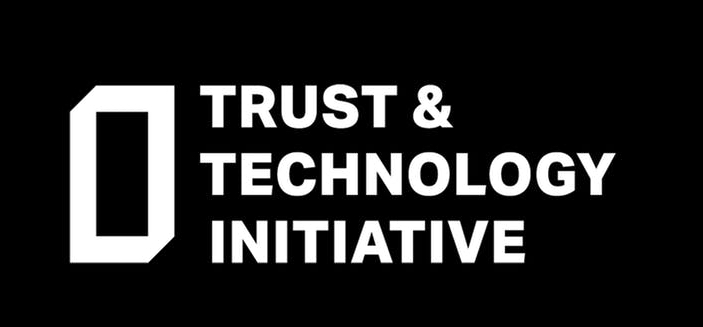Reflections on the Critical Perspectives on Law, Technology, & Society reading group
Lily Hands; PhD Candidate, Faculty of Law, University of Cambridge
In ‘The New Forms of Control’, Herbert Marcuse opined that a ‘comfortable, smooth, reasonable, democratic un-freedom prevails in advanced industrial civilization, a token of technical progress.’[1] If so, what is the nature of this technological ‘unfreedom’, and what (if anything) does it have to do with law?
This question animated both my doctoral research, and my participation in the Critical Perspectives on Law, Society and Technology Reading Group. Convened by Drs Jennifer Cobbe and Christopher Markou, the reading group set out to explore how technological change interacts, challenges, subverts, and co-evolves with the law and society. The group brought together a diverse spectrum of people from disciplines including law, computer science, sociology and economics, among others. The ‘productive friction’ engendered by these disparate viewpoints – expertly steered by Jenn – led to several breakthroughs in my work, both major and minor. On a general level, ‘zooming out’ from law helped me establish a broader perspective on its role and limitations, something which can be difficult to achieve from within the confines of one’s own discipline. The interdisciplinarity of my dissertation has unquestionably been strengthened by watching different modes of knowledge cross-pollinate in real time. It has also provided an excellent forum to meet others who share some of my interests and concerns, and to learn more about their unique perspectives.
On a substantive level, the radical consequences of emerging technologies for society and for law was made clear to me early on by Marshall McLuhan’s Understanding Media: The Extensions of Man, which the group discussed in one of its initial sessions. McLuhan argues that the medium of a communication shapes and controls the form, scale, pace and pattern of human relations and action, regardless of its use or content. Identifying patterns within a medium as well as in its relationships with other media can reveal, predict and possibly control the social and normative effects of their use. Conversely, without a detached focus on the nature of specific media, the assumptions, biases and values they inherently afford – and thus their functional limits for humanity – will remain invisible.[2] These reflections were influential in the development of my first year PhD report, which focused in part on the shift in media from natural language to binary code and its implications for law as a system based on an underlying concept of justice.
Beyond McLuhan’s arguments, the group enabled me to better appreciate how the relationships between law, society and technology are fundamentally co-evolutionary. Law and society do not just respond to technology; they shape the conditions of possibility of technology itself, including whether and how it comes into existence, its use, and the modes and discourses of acceptance and resistance. From this co-evolutionary approach it also follows that there is no such thing as ‘optimisation’ within the systems we have created – whether social, legal or technological. At the same time, by better understanding these dynamics and how they came to be, we can increase our potential range of action – the conditions of possibility under which we might more consciously decide how we would like to both use, and respond to the prospect of, emerging technologies. For example, one of the most enduring themes of discussion within the group was how powerfully – and perhaps pathologically – technology, law and society appear to be yoked to the economic system, even as emerging technologies render the logic of accumulation within that economic system more extractive and antidemocratic than under earlier forms of capitalism.[3] Impersonal and rule-centred legal institutions including (but not limited to) property and contract have in many ways enabled this transition, by tending towards compatibility with a rationality of efficient administration. At the same time, law itself is being transformed by new, often algorithmic, modes of organisational efficiency.[4] This might lead us to ask just how close we are to the gloomy totalitarian vision of Vaclav Havel in The Power of the Powerless:
‘Technology—that child of modern science, which in turn is a child of modern metaphysics—is out of humanity’s control, has ceased to serve us, has enslaved us and compelled us to participate in the preparation of our own destruction. And humanity can find no way out: we have no idea and no faith, and even less do we have a political conception to help us bring things back under human control.
And so we return to my original question: how can, and should, we respond to the spectre of ‘unfreedom’ identified by Havel and Marcuse decades ago, and which more recent analyses of the contemporary technological, legal and social landscape have only tended to reinforce? And how can we respond without needlessly jettisoning legitimate and useful technologies and their uses?
I am yet to answer these questions. The intellectual starting point of my PhD was Karl Polanyi, who argued that freedom can only be achieved through and within society – individuals must have the means and opportunity to take full responsibility for all the consequences of their actions.[5] Using Polanyi’s social freedom as a compass, I am currently researching the nature of the risks posed by artificial intelligence and their implications for the legal system’s capacity to respond and co-evolve with such technologies in the future. The intellectual structure and interdisciplinary grounding I received from the group continues to be a valuable resource in this respect.
[1] Herbert Marcuse, One Dimensional Man (Beacon Press 1964), 34.
[2] Marshall McLuhan, Understanding Media: The Extensions of Man (MIT Press 1994) ch1.
[3] See eg Shoshanna Zuboff, ‘Big Other: Surveillance Capitalism and the Prospects of an Information Civilisation’ (2015) 30 Journal of Information Technology 75.
[4] David Lyon, ‘Surveillance Society’ (Festival del Diritto, Piacenza, Italy, 28 September 2008) http://www.festivaldeldiritto.it/2008/pdf/interventi/david_lyon.pdf - accessed 3 February 2020
[5] Karl Polanyi, The Great Transformation: The Political and Economic Origins of Our Time (2nd ed., Beacon Press 2001).

